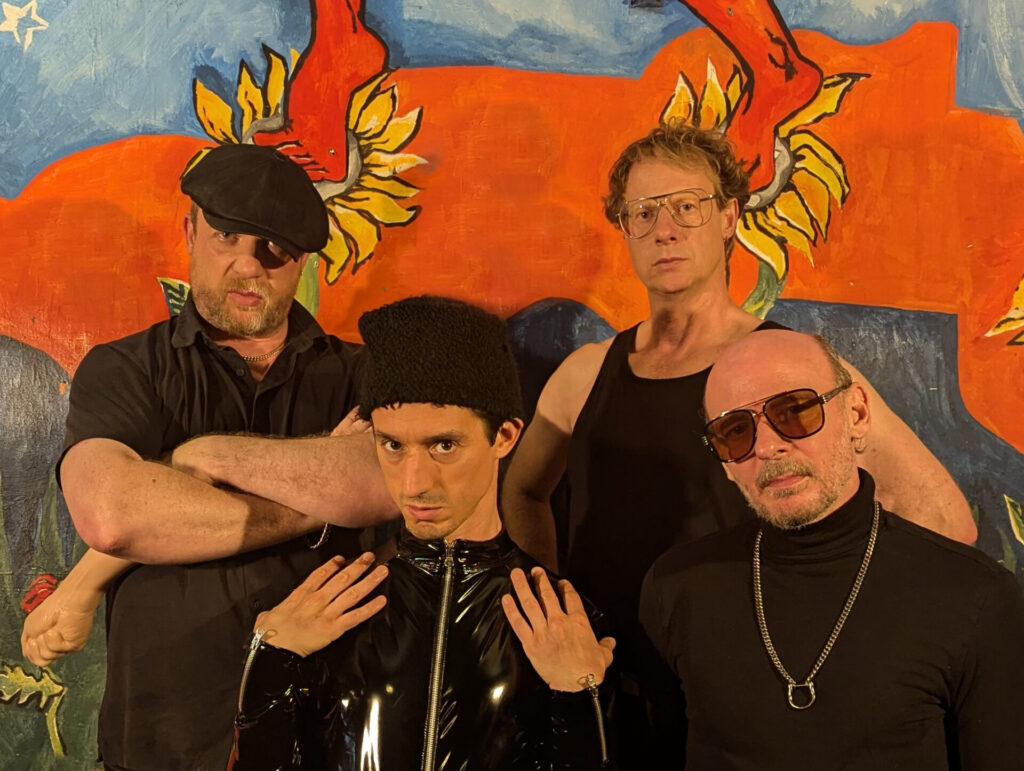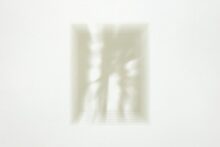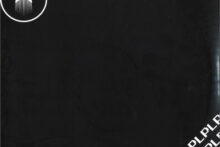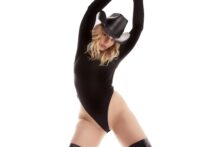For 20 years, until its closure in 2016, Chariots Roman Spa sat just behind a DIY supplies warehouse popular with the trades on a busy and ancient road junction at the edge of the City of London, an ugly, blue-fronted building incongruous with the increasingly chi-chi bustle of Shoreditch. On entering, a small fee would get you a towel, a locker key, and the freedom to wander as long as you liked, enjoying the facilities. There was a small pool with a half-arsed mosaic to fit the theme, steam room, hot tub, sauna, warrens of little private rooms and larger, communal spaces where ‘specialist films’ on VHS glowed through an atmosphere scented with sweat, cleaning fluid, and much else mysterious besides. Questions were asked with the eyes and the hands, because merely by being there, everyone had a secret.
I first fell in love with Decius in part thanks to Ian Wade’s Fiddler On The Doof review of their debut album that connected them with London’s gay underbelly. I write about Chariots while listening to their new album Vol. II (Splendour & Obedience), because it does something similar, but not quite the same, for me – this is Decius through the bisexual, heterosexual with a lot of inverted commas, or down-low lens. I don’t write about Decius in the context of Chariots because of the grandiose irony of both entities adopting the aesthetics of Rome – the former in the pot-bellied emperor looking sorrowfully at his big pig on the album sleeve, the latter in the horse and chariot logo on the otherwise nondescript building’s frontage. Nor do I write about them together because the music is anything like what was played therein – the Chariots soundtrack was tinny chart pop and R&B amidst the muttered conversation or grunts and groans of plumbing and clientele alike.
Instead, it’s that Decius’ music (and especially Vol. II – Splendour & Obedience), is made by men who identify with the lower – i.e. straighter – numbers on The Kinsey Scale. It is music that oozes with exactly the corruption of supposedly heterosexual masculinity that one also encountered in Chariots, where on certain evenings it could feel that openly gay men were in the minority compared to the closet Essex city boys gakked up and in denial before the last Liverpool Street train home, trades popping in for a different kind of filler to what might be acquired in the shop across the road, bouncers tense and looking for release at the end of a shift, older men who’d never had the freedom to be out in their time, others from cultural groups where it was impossible to be openly gay or bisexual. In Chariots these men took off their selves with their clothes and for a moment would be free, even if for some that moment lasted only until waves of shame washed over them with the traffic of London outside.
On a Tuesday afternoon before Christmas, the shrill racket of American tourists enthusing at the quaint blackened wood surroundings of Ye Olde Cheshire Cheese pub on Fleet Street does battle with the voices of Decius’ Lias Saoudi (who performs in the group as vocalist Meat Divine) and Liam and Luke May (fourth member Quinn Whalley, also of Paranoid London, is absent). For those who need bringing up to speed, Decius began when three pals Luke, Liam and Quinn started “doing things with machines, trying to get away from computers, just for fun,” according to Luke May. They sent music to Saoudi, who they knew from releasing Fat White Family records on their Trashmouth label. He liked the “murkiness, a certain shadiness” in the music and got on board. The collaboration resulted 2022’s Decius Vol. I in which techno’s sleazy underbelly engaged in squelchy frottage with disco, rugged acid house, EBM and Suicide’s second album.
Vol. I first found a home in gay clubs in New York, London and Berlin, and it was invitations to play at these establishments that meant that Decius decided to pump up their sound for their second record. “I think it’s a bit more voluptuous,” says Liam May, “the first one was self-consciously scratchy and not filled-out, we wanted to get more cheesy basslines in there.” According to his brother, playing out live taught them that they wanted the record to sound fatter; more engorged, I ask? “When I say ‘fat’, I’m not saying with a ‘P-H’”, he says, explaining there was a desire to write more songs amidst the bangers. While the three producers were veterans of acid house, electro and techno, Saoudi was an ingénue: “Berlin is the only place I ever experienced any dance music culture, really. I didn’t really ever tuck into that in the UK.” It was a night in Berghain 15 years ago that “popped my head”, and he’d return every year for an annual pilgrimage to get it re-popped. Unfortunately for Saoudi, he often faced rejection from the notoriously hard to please bouncers. This was especially galling when he read DJ feedback forms on Decius records that said they were being played in the forbidden zone. “I knew my alter-ego was in there, maybe that was job well done, but I felt quite wounded by it,” he says.
I find this idea of Meat Divine, libidinous and ambiguous voice of Decius, raving away in Berghain while Lias Saoudi stood cold, scrawny and rejected in the freezing Berlin night interesting. It speaks of double lives, of dank and private rooms being places where one might lose inhibitions, to surrender to… well yes, splendour and obedience. Saoudi as a writer has long been interested in deviance, moral decay, exploitation and reacting to sanctimonious piety, whether in his lyricism for Fat White Family and Moonlandingz, or in essays. That Decius use body music in genres associated with hedonism and pleasure to back his words arguably make this the project the one where getting stuck in to the ambiguity of life and sex is executed most effectively.
Decius’ sleaze is hard to find in music at the moment. Techno has abandoned the sex swing in favour of a “deathdrive techno, ultra-fast BPM, the sound of the void” under the influence of trance and gabber. Decius bring it with the tough backing rhythms and arpeggios that then roughly manhandle Saoudi’s croons, pants, gasps, paranoid yelps, quavering pleas verging on a scream. Decius, more Soft Cell’s This Last Night In Sodom than Self Esteem, reflect in their art a sexuality and masculinity few dare to engage with right now, the ‘moment of madness’ knee-trembler in a provincial park cottage, the allure of the apps and internet, the sidle into Chariots, the spaces where the selfhood of superficially ‘straight’ men might be undone along with their trousers. Such situations relate to an understanding of sexuality that, according to Saoudi, “is not empowering at all – ultimately it’s severely compromising; it’s civilisational – you’re reduced to the animal matter, you have to get primordial, there’s nothing empowering about that, it’s just fucking chaos.”
Liam May says that in making Decius’ music he’ll often find that a particular rhythm or synth line will give him a Proustian recall of a drug gurn. I think the same manifests with Decius and sex – music this good might not have been played at Chariots, and for various reasons I’ve retired from these antics now and no longer feel the need for them, but it evokes the feeling of the place. This is where the ambiguity of it all just becomes more intensely paradoxical. “You have to repress all of this stuff, and then there’s an outlet for it – which is Decius,” Saoudi says, “Rock & roll and dance music are inherently libidinal, so if anywhere is a safe space for those energies then surely it’s there. You can’t prohibit that – surely it should be actively encouraged? Where else are you supposed to be a complete freak?” Music, and art more generally, ought to be the forum to get these energies out, rather than leave them to fester, becoming toxic. Liam May points out that the sexuality of Decius isn’t aggressive or threatening, but “expressive, seedy shamefulness – a ‘do it in the dark’ thing.”
Saoudi interjects: “Muslim guilt, that’s what I call it, like Catholic guilt, but far more severe, all punishment and improvement.” Is the energy of shame a big inspiration for Decius, in that case? “This is the place to bring your guilt. I automatically associate sex with shame, it’s a great contradiction, it boils you right down. It’s a tricky one, but I feel like I’ve got a handle on it now.” Part of this blurring of identities, making music that is ambiguous in its sexual orientation, and it being sensual in a way that is curiously not entirely masculine, is part of Saoudi’s adoption of the Meat Divine persona, welcome in hedonistic nightclubs when he isn’t. “If you’re any kind of artist, the feminine and masculine parts of your identity are co-mingled,” he says, “what you do is a conduit between those two spheres. As a performer that’s been a place where I feel absolutely comfortable.”
Decius are a group who are fascinated by the dancefloor not as utopia (as is the current vogue from music criticism to academia), but a far more complicated space of power and pain. It might be an unlikely comparison, but there’s a connection between contemporary dance music culture and the fact that a key inspiration for Splendour & Obedience was endless, semi-conscious sessions bathed in the “60s hum” of Kenneth Clark’s landmark TV series, Civilisation. Watching it led Saoudi to start thinking about the idea that “there is a grain of suffering behind every civilised thing”. What does he mean by it? “It’s the Roman thing of order and pain, and there’s something about that experience, especially in Berlin, where suffering and pleasure are married. Pleasure is taken so seriously that it’s almost suffering, the beat wants more of you than it really deserves or has any right to ask – submission to this machine. That ties in with that Roman classical sense of order being the price of civilisation, regimentation of the human matter – pull your fucking socks up.” He directly applies this strangeness to Berghain itself. “It’s weird that’s where you go to get off. It’s riffing on totalitarian aesthetics – the selection process at the entrance is absolutely fucking brutal, you’re waiting in line, you’ve chosen to have yourself publicly judged and cast off in front of everybody else. There’s shame in that, there’s pain woven into the experience. It’s not all about servicing your public, your audience, it’s like an experiment, or performance art.” Luke May points out that when inside, there’s a sense of gratitude among those welcomed over the threshold that perhaps reduces inhibitions. Saoudi agrees: “Once you’re one of the select you immediately join in demeaning the un-elect, the ones that didn’t get in – your joy is at their expense. Once you’re in, you happily sort of revel in that process, which is sick on lots of levels.” This works on a further level too. For all the liberation of Berghain, I’ve often found it quite a conformist place – a regulation uniform of black, perhaps a harness, fetishwear de rigeur. When it’s normal to see a man kneeling by a urinal begging to be used as a toilet, perhaps these acts lose their transgressive power. I’d argue that Chariots represented a more accurate and complex portrait of the true breadth of male on male desire outside the out and conscious LGBTQI+ community.
Yet for all this, the actual process of writing sounds remarkably wholesome. Saoudi will take a few ideas down to Liam May’s house, drinking tea, beset by kids in lion costumes, hardly the right surroundings for the singer to do what he describes as his “gimping out”. Perhaps the ability to make such dirty music in this very ordinary setting is what makes it so good, like a cottage or a sauna the unfettered id raging away just moments away from supposed civilisation. “I think if you can summon the beast in those circumstance you must be onto a winner,” says Luke May, “you’re having to work at it.”
Then again, there’s perhaps a twist to what feels like a far less chaotic writing and recording process than Saoudi experiences in the much-documented “arbitrary chaos” and psychosis of Fat White Family. In live sets, the May brothers and Whalley stand glowing behind their machines, winding up their rhythms until Saoudi is sent disappearing into the crowd; the interview begins with them recounting what happened during last year’s Glastonbury set, when he took drugs for the first time in a while. He ended up wearing a fez, tussling with the audience, and vomiting. “I’d gone from this clandestine front person to just this strange bloke in a fez being sick on myself.” Such behaviour is perhaps not splendour, but certainly a kind of obedience. This working dynamic seems to connect with the guilt and shame that oozes through Decius’ music. “I need a punisher,” says Saoudi, warming to his theme; “a thwarted paternal figure, an angry, wrathful patriarchal monster, so I cultivate these figures all around me. Decius are the softest, most benevolent of my patrons.”
How long can this continue? What happens when Decius eventually emerge from the bum dungeon into the grim grey light of dawn, aching in those places where they used to play? “Volume three will be Twilight and Entropy, more melancholy,” says Saoudi. “You’ve seen a few things, wistful, end of the bar, reminiscent kind of techno – Aran jumper techno. We’ll get into that Celtic thing that’s popular at the moment, ‘featuring Lankum’.” As was always the way at Chariots, it takes all sorts.
Decius’ Vol. II (Splendour & Obedience) is released on The Leaf Label on 31 January, with more info here. They play Fabric on 20 February, tickets here








